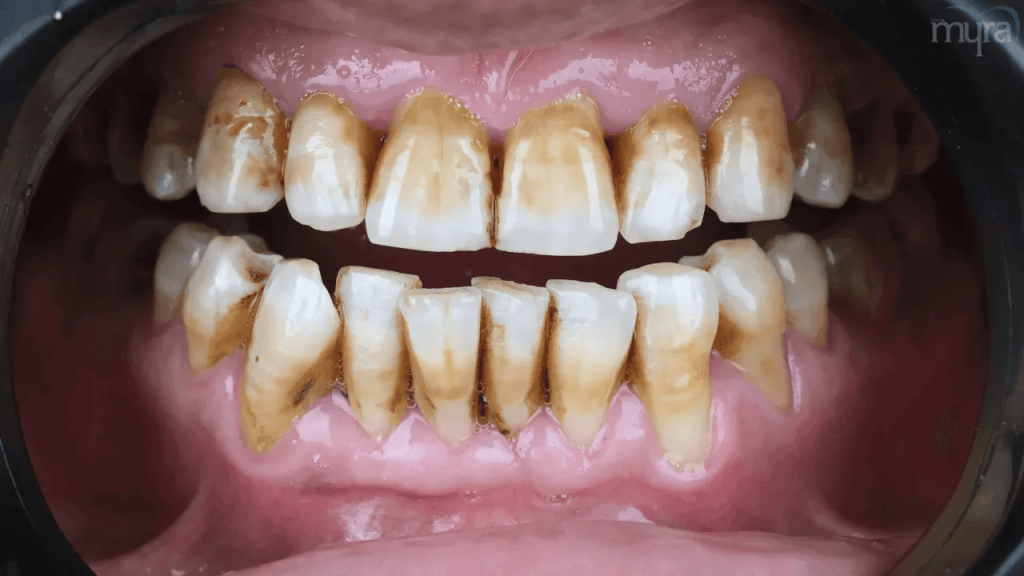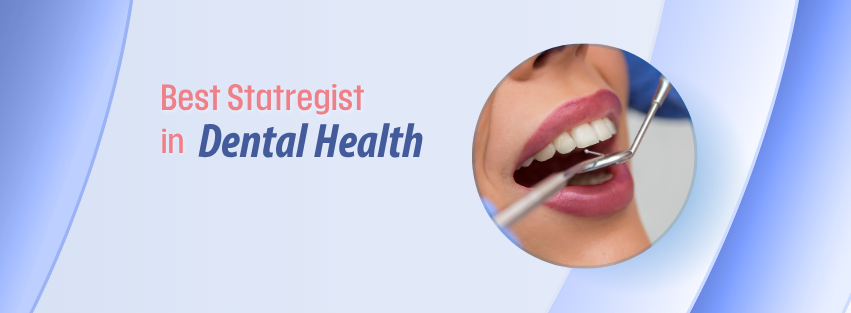
Understanding the causes of tooth decay: Why are all my teeth starting to decay?
Are you wondering why all your teeth seem to be starting to decay? It’s a concerning issue that can affect your overall health and happiness. Understanding the causes of tooth decay is essential for maintaining a healthy smile.
Let’s dive into the reasons your teeth might be suffering from decay and how to address these problems.
Tooth decay occurs when harmful bacteria in your mouth produce acids that erode tooth enamel. This process can lead to cavities and serious dental issues if left untreated. Here are some key factors contributing to tooth decay:
- Poor Oral Hygiene: Neglecting to brush and floss regularly can lead to plaque buildup. Plaque is a sticky film of bacteria that forms on your teeth. Without proper cleaning, plaque hardens into tartar, which is difficult to remove and promotes decay.
- Diet High in Sugars and Acids: Consuming a diet rich in sugar can accelerate tooth decay. Sugars feed the bacteria in your mouth, increasing acid production. Acidic foods and drinks like soda, fruit juices, and candies can weaken enamel, making them more susceptible to decay.
- Dry Mouth: Saliva plays a vital role in protecting your teeth by neutralizing acids and washing away food particles. If you experience dry mouth due to medication, dehydration, or certain health conditions, the risk of tooth decay increases.
- Frequent Snacking: Eating snacks throughout the day can expose your teeth to a constant sugar supply. If you nibble on chips or candies, you give bacteria more opportunities to produce harmful acids.
- Inadequate Fluoride Exposure: Fluoride is essential for strengthening enamel. If you’re not getting enough fluoride from your toothpaste or drinking water, your teeth may not have the added protection they need against decay.
- Underlying Health Conditions: Certain conditions like diabetes and autoimmune diseases can affect oral health. These can lead to increased sugar levels or reduced saliva, creating an environment conducive to tooth decay.
It’s essential to identify which of these factors may apply to you. A visit to your dentist can help pinpoint the causes of your tooth decay. Here are some tips to help combat the problem:
- Maintain Good Oral Hygiene: Brush your teeth at least twice a day with fluoride toothpaste and floss daily. This helps remove plaque and food particles.
- Limit Sugar Intake: Try to reduce the amount of sugary foods and drinks you consume. Opt for healthier snacks like fruits and vegetables.
- Stay Hydrated: Drink plenty of water throughout the day. This helps to prevent dry mouth and neutralizes acids in your mouth.
- Regular Dental Check-ups: Schedule regular dentist visits for cleanings and check-ups. Early detection of decay can prevent more serious issues.
- Use Fluoride Products: Incorporate fluoride mouthwash or gels into your routine for extra protection against cavities.
If you’re feeling overwhelmed by your dental health concerns, remember that you’re not alone. Many people face similar issues, and seeking help is a step in the right direction. Understanding the reasons why all your teeth are starting to decay empowers you to take action towards a healthier smile.
The role of diet in dental health: Foods that fight decay.
Many people underestimate the impact that diet has on dental health. What you eat plays a crucial role in how your teeth and gums stay healthy.
Certain foods can actually fight decay and help keep your smile bright. Let’s explore how dietary choices can influence your oral health and discover some foods that are beneficial for your teeth.
The connection between diet and dental health:
Your diet is directly linked to the overall health of your teeth. Foods high in sugar and acidity can weaken tooth enamel, making them more vulnerable to decay. When you consume sugary snacks, the bacteria in your mouth feed on these sugars and produce acids that attack your teeth. Therefore, paying attention to what you eat can be a game-changer in protecting your dental health.
Foods that promote healthy teeth:
Specific foods into your diet can help you combat tooth decay. Here are some of the top foods that promote oral health:

- Dairy Products: Milk, cheese, and yogurt are rich in calcium and phosphate. These nutrients help to remineralize your teeth, strengthening enamel and fighting cavities.
- Crisp Fruits and Vegetables: Apples, carrots, and celery are great snacks that stimulate saliva production. Saliva helps wash away food particles and neutralizes acids produced by bacteria.
- Leafy Greens: Spinach and kale are low in calories and high in vitamins and minerals. They contain calcium and folic acid, which are beneficial for overall oral health.
- Whole Grains: Foods like brown rice and oatmeal provide complex carbohydrates. Unlike refined grains, whole grains are less likely to stick to your teeth and promote dental hygiene.
- Green Tea: This beverage contains antioxidants that help reduce inflammation and fight bacteria, providing additional protection against gum disease.
- Nuts and Seeds: Almonds and walnuts are excellent choices packed with nutrients. They contain calcium, vitamin E, and healthy fats, supporting strong teeth and gums.
Foods to avoid for better dental health:
While some foods are beneficial for your teeth, others can contribute significantly to decay and gum disease. It’s wise to limit the following:
- Sugary Snacks and Beverages: Candy, soda, and desserts are high in sugar and can lead to cavities.
- Acidic Foods: Citrus fruits and vinegar can erode enamel if consumed in excess.
- Refined Carbohydrates: White bread, chips, and pastries can stick to your teeth and form plaque.
Balancing your diet for optimal dental health:
Maintaining a balanced diet is essential for both your overall health and your dental well-being. a variety of nutrient-rich foods will do wonders for your teeth. Aim for a colourful plate filled with fruits, vegetables, whole grains, and lean proteins. Each food group contributes unique nutrients that collectively support strong teeth and gums.
Tips for teeth-friendly foods:
Here are some practical tips on how to include these dental-friendly foods in your daily routine:
- Snack Wisely: Choose fresh fruit or raw vegetables instead of processed snacks.
- Swap Beverages: Replace sugary drinks with water or unsweetened herbal tea.
- Add Greens: Include leafy greens in your salads or smoothies for added nutrients.
By making informed food choices, you can significantly improve your dental health and reduce the risk of decay. Remember, a little change in your diet can go a long way in keeping your teeth healthy and your smile radiant. Nutrition is your ally in the battle against tooth decay, so make every bite count!
Preventive Measures: How to protect your teeth from decaying?
Understanding tooth decay:
Tooth decay occurs when bacteria in your mouth produce acid that wears away the enamel of your teeth. This can lead to cavities and deeper problems if not addressed. Several factors contribute to tooth decay, including poor hygiene, diets high in sugar, and lack of regular dental check-ups.
Daily oral hygiene practices:
One of the most effective ways to prevent tooth decay is through consistent oral hygiene. Here are some essential practices to follow:
- Brushing: Brush your teeth at least twice a day. Use fluoride toothpaste, as fluoride helps strengthen tooth enamel.
- Flossing: Don’t skip flossing. It removes food particles and plaque from between your teeth, where your brush can’t reach.
- Mouthwash: Rinse with an antibacterial mouthwash that can help kill bacteria and freshen your breath.
Healthy diet choices:
Your diet plays a vital role in your dental health. By making smart food choices, you can significantly reduce the risk of tooth decay. Consider the following:
- Limit Sugary Foods: Sugars feed the bacteria in your mouth. Reduce intake of candies, soda, and baked goods.
- Eat Crunchy Fruits and Vegetables: Foods like apples and carrots can help clean your teeth as you chew.
- Drink Plenty of Water: Water helps wash away food particles and bacteria. It also keeps your mouth hydrated.
- Include Dairy Products: Items like milk and cheese are rich in calcium and can help strengthen your teeth.
Prevent dry mouth:
Dry mouth can increase the risk of decay because saliva helps wash away food particles and neutralize acids. Here’s what you can do:
- Stay Hydrated: Drink water regularly throughout the day.
- Chew Sugar-free Gum: This stimulates saliva production, aiding in the natural cleaning of teeth.
- Avoid Alcohol and Caffeine: These can contribute to dry mouth, increasing decay risk.
Oral Hygiene practices: Daily routines for healthy teeth
Brushing your teeth:

The cornerstone of any oral hygiene routine is brushing your teeth. Aim to brush at least twice daily—once in the morning and once before bed. When brushing, consider the following tips:
- Choose the right toothbrush: Soft-bristled toothbrushes are ideal as they are gentle on your gums.
- Use fluoride toothpaste: Fluoride strengthens tooth enamel and helps protect against decay.
- Brush for two minutes: Spend at least 30 seconds on each quadrant of your mouth to ensure thorough cleaning.
- Don’t forget your tongue: Gently brushing your tongue helps remove bacteria and keeps your breath fresh.
Flossing daily:
Brushing alone can’t reach every part of your teeth. Flossing daily is crucial for removing food particles and plaque between your teeth. Here’s how to floss effectively:
- Use about 18 inches of dental floss: Wrap it around your fingers and hold it tightly.
- Slide between your teeth: Gently move the floss back and forth, following the contours of your teeth.
- Use a clean section: Shift to a fresh section of floss as you move from tooth to tooth.
- Don’t rush: Take your time to ensure each space is clean.
Rinsing with mouthwash:
Mouthwash into your routine can enhance your oral hygiene. Choose an antiseptic mouthwash that kills bacteria, or one with fluoride for extra protection. Rinse as directed, usually for about 30 seconds, to give it ample time to work.
Balanced diet for strong teeth:
Your diet plays a significant role in your dental health. Foods high in sugar can lead to tooth decay, so it’s wise to limit sugary snacks and drinks. Instead, focus on a balanced diet including:
- Dairy Products: Foods like yogurt and cheese provide calcium for strong teeth.
- Fruits and Vegetables: Crunchy veggies like carrots and celery help clean your teeth naturally.
- Whole Grains: Whole grain foods can help provide essential nutrients.
Stay hydrated:
Drinking plenty of water is not only good for your body but beneficial for your teeth as well. Water helps wash away food particles and bacteria, reducing the risk of cavities. When you can, choose water over sugary drinks to keep your mouth healthy.
Avoid harmful habits:
Certain habits can harm your teeth, making it vital to avoid them. Here are a few to steer clear of:
- Smoking: Tobacco use is linked to gum disease and tooth loss.
- Chewing on hard objects: Avoid using your teeth as tools or chewing on ice to prevent chips and cracks.
- Grinding your teeth: If you grind your teeth at night, consult your dentist about getting a mouthguard.
Implementing these daily oral hygiene practices can set you on the path to lifelong dental health. By brushing, flossing, rinsing, visiting your dentist, eating right, staying hydrated, and avoiding harmful habits, you’re taking significant steps toward maintaining your smile. Remember, the key to healthy teeth lies in consistency and care. Prioritize oral hygiene every day, and your teeth will thank you!
The Impact of lifestyle choices on tooth health: Smoking, alcohol, and more.
Our teeth play a vital role in our overall health, and they require consistent care to stay strong and healthy. Unfortunately, many lifestyle choices can negatively impact your tooth health. Understanding how habits like smoking, drinking alcohol, and poor diet affect your teeth can help you make better decisions for a brighter smile.
Smoking is one of the leading contributors to dental problems. When you smoke, you’re not just affecting your lungs; you’re also harming your teeth and gums. The chemicals in tobacco can shield the gums, leading to gum disease. This condition can cause your gums to pull away from your teeth, resulting in tooth decay. Additionally, smoking stains your teeth, making them look yellow and unhealthy. If you want to preserve your smile, quitting smoking is a crucial step.
Alcohol is another lifestyle factor that should be considered in relation to tooth health. While moderate drinking may not have a significant impact, excessive alcohol consumption can lead to dry mouth. This condition hampers the production of saliva, which is essential for washing away food particles and bacteria.
A dry mouth can increase your risk of cavities and gum disease. Moreover, many alcoholic beverages, like wine and cocktails, are acidic and can erode enamel, leading to further decay. It’s important to drink alcohol in moderation and stay hydrated to protect your teeth.
The foods you eat also play a crucial role in your oral health. Consuming a high-sugar diet can increase the risk of cavities. Bacteria in your mouth feed on sugar and produce acid, which attacks your tooth enamel. Foods like candy, soda, and other sugary snacks are major culprits.
Instead, focus on a diet rich in fruits, vegetables, and whole grains. These foods not only nourish your body but also help keep your teeth strong. Here are some tooth-friendly foods to consider:
- Crunchy fruits and vegetables: Apples and carrots can help clean your teeth naturally.
- Dairy products: Milk, yogurt, and cheese are rich in calcium, which is essential for strong teeth.
- Leafy greens: Spinach and kale contain vitamins and minerals that support gum health.
Moreover, your hydration level significantly impacts your oral health. Drinking enough water helps maintain saliva production, which is crucial in preventing cavity formation. Water also rinses away food particles and reduces acidity in your mouth. Aim to drink at least eight glasses of water daily to keep your mouth healthy.
Conclusions:
Tooth decay is a common concern that can stem from various factors, including dietary choices, oral hygiene practices, and lifestyle habits. Understanding the causes behind why your teeth may be starting to decay is the first step toward preventing further damage.
Foods high in sugar and acidity contribute significantly to the deterioration of your dental health. By choosing to incorporate foods that promote strong teeth, like dairy products, fruits, and vegetables, you can create a more balanced diet that supports your oral well-being.
